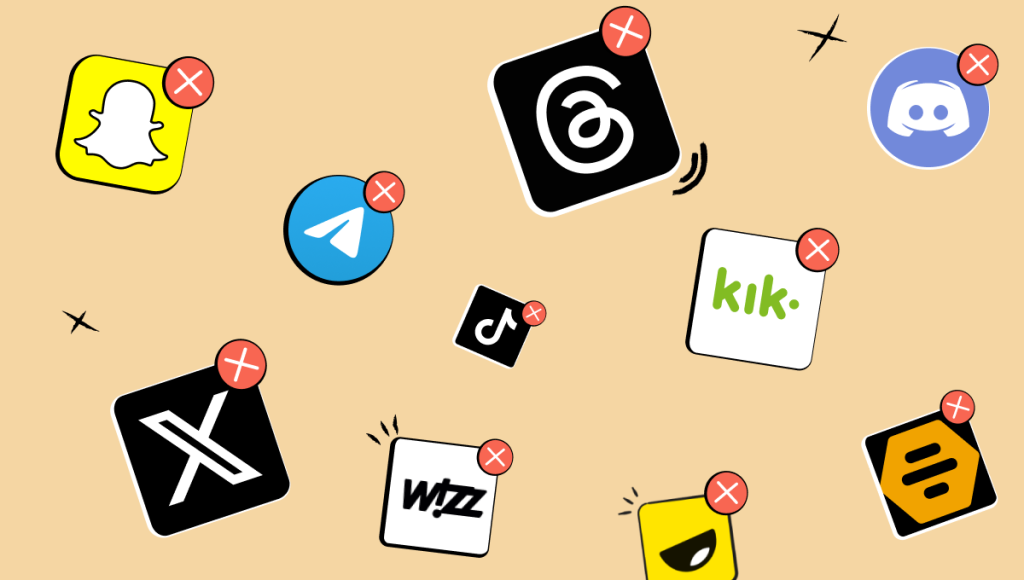
The digital age has brought wonderful opportunities for communication and learning, but it also comes with its own risks. Among these threats, the FBI has seen a sharp increase in the number of cases involving threats and coercion of children and teenagers to send explicit images online — a crime called sextortion. And that is most worrying for parents. Sextortion involves predators exploiting children through coercion, manipulation and threats after receiving sensitive or explicit material.
As a parent, it is important to understand these risks and take proactive steps to ensure your child’s safety. According to BBC News recently, a 16-year-old British teenager ended his life after being a victim of sextortion last year, and in North Wales alone there was a 98% increase in reported incidents of the crime last year.
Recent research shows that approximately 5% of middle and high school students report being victims of sextortion, and 3% admit to having threatened peers who shared an image or private information with them in confidence.
What is Sextortion, and Why Should Parents Worry?
Sextortion typically starts with predators establishing contact via popular communication apps like WhatsApp. They may:
- Coerce children into sharing sensitive images or videos.
- Threaten to release the content unless more explicit material is shared.
- Exploit kids emotionally, financially, or socially.
The anonymity of the internet makes it easier for predators to manipulate kids. Apps like WhatsApp, which are often used for personal chats, can become a gateway for such exploitation.
Signs Your Child May Be a Victim of Sextortion
Detecting sextortion can be challenging, as kids rarely disclose it immediately. Parents need to stay vigilant for key warning signs:
1. Behavior Changes
Rapid mood swings, increased anxiety, depression, or withdrawal from family and friends can indicate something is wrong. Pay attention to your child’s emotional well-being and any drastic changes.
2. Secrecy Around Digital Devices
If your child becomes unusually protective of their phone or computer, it could be a sign of trouble. Look for behaviors like:
- Changing passwords frequently.
- Avoiding device use in public spaces.
- Making social media accounts private unexpectedly.
3. Unusual Financial Requests or Activity
Sextorters may demand money in exchange for not sharing explicit content. If your child asks for money without explanation or is withdrawing funds unusually, this could be a red flag.
4. Social Avoidance
Victims of sextortion may avoid social events, peers, and even school. If your teen suddenly refuses to attend school or avoids social gatherings, it’s time to investigate.
5. Physical Symptoms
Stress from sextortion often manifests as physical issues, including:
- Frequent headaches or stomachaches.
- Changes in sleep patterns.
- The general body aches due to tension.
Recognizing these signs early can help parents intervene and support their child.
Why Parents Need to Take Action
Children often feel scared, ashamed, or helpless in sextortion scenarios, which prevents them from seeking help. Here’s why parental intervention is critical:
- Unawareness of Risks: Kids may not understand the dangers of sharing personal information or media online.
- Lack of Communication: Embarrassment can prevent them from opening up about troubling situations.
- Rapid Escalation: Predators act quickly, making early detection vital.
This is where KidsNanny’s WhatsApp Shield becomes a must-have for parents who want to ensure their child’s safety.

How KidsNanny’s WhatsApp Shield Fights Sextortion
The WhatsApp Shield feature of KidsNanny offers advanced protection to safeguard your child from sextortion and inappropriate online content. Here’s how it works:
1. Instant Detection
The WhatsApp Shield uses cutting-edge technology to identify explicit, sexual, or harmful media and text in real-time. This ensures no harmful content remains undetected.
2. Automatic Deletion
If harmful content is detected, it is immediately deleted before it can harm your child or escalate into a bigger issue. This proactive approach prevents predators from gaining leverage over your child.
3. Real-Time Alerts
Parents receive instant notifications whenever inappropriate content is detected. This keeps you informed and ready to intervene when necessary.
Tips for Parents to Prevent Sextortion
While technology like WhatsApp Shield provides a robust safety net, parents must also play an active role in educating and protecting their children. Here are some tips:
1. Educate Your Child
- Talk to them about the dangers of sextortion in a non-judgmental way.
- Teach them to never share personal or explicit content online.
2. Encourage Open Communication
- Create a safe space for your child to share their concerns without fear of punishment.
- Let them know they can always come to you for help.
3. Monitor Online Activity
- Use tools like KidsNanny to monitor your child’s device activity.
- Pay attention to any behavioral changes that might signal trouble.
4. Set Boundaries
- Limit screen time and set rules for online interactions.
- Encourage them to verify the identity of people they interact with online.
5. Stay Informed
Keep yourself updated on the latest online threats and trends in child safety.
Monitor their Screen time, App usage, Screen Scanner, Live location and more with KidsNanny.
Why KidsNanny is the Best Choice for Parents
The WhatsApp Shield is just one of the many features that make KidsNanny parental control app an essential parental control app. It not only protects your child from sextortion but also helps manage screen time, block harmful apps, and ensure safe browsing.
By integrating WhatsApp Shield into your child’s device, you’re taking a proactive step in safeguarding them against the hidden dangers of the internet. With KidsNanny, you can ensure your child’s online experience is both fun and safe.
Final Thoughts
The threat of sextortion is real, but parents have the power to protect their children. By combining education, open communication, and advanced tools like KidsNanny’s WhatsApp Shield, you can build a strong defense against this menace.
Don’t wait for an incident to happen—act now to protect your child. With KidsNanny’s WhatsApp Shield, peace of mind is just a click away.
No, WhatsApp Shield is not a traditional WhatsApp tracker. Instead of tracking all activities, it focuses on monitoring and blocking harmful or inappropriate content to protect your child’s safety.
WhatsApp Shield only monitors content for safety concerns and does not store or share private conversations. It ensures your child’s privacy while providing necessary protection.
When WhatsApp Shield detects inappropriate content, it sends an instant alert to the parent and automatically deletes harmful messages, images, or unsafe content.
Yes, WhatsApp Shield actively blocks the sharing or receiving of nude or partially nude images, providing enhanced safety for your child.
Simply download the KidsNanny App, connect your child’s device, and enable the WhatsApp Shield feature by following the step-by-step guide provided in the app.







